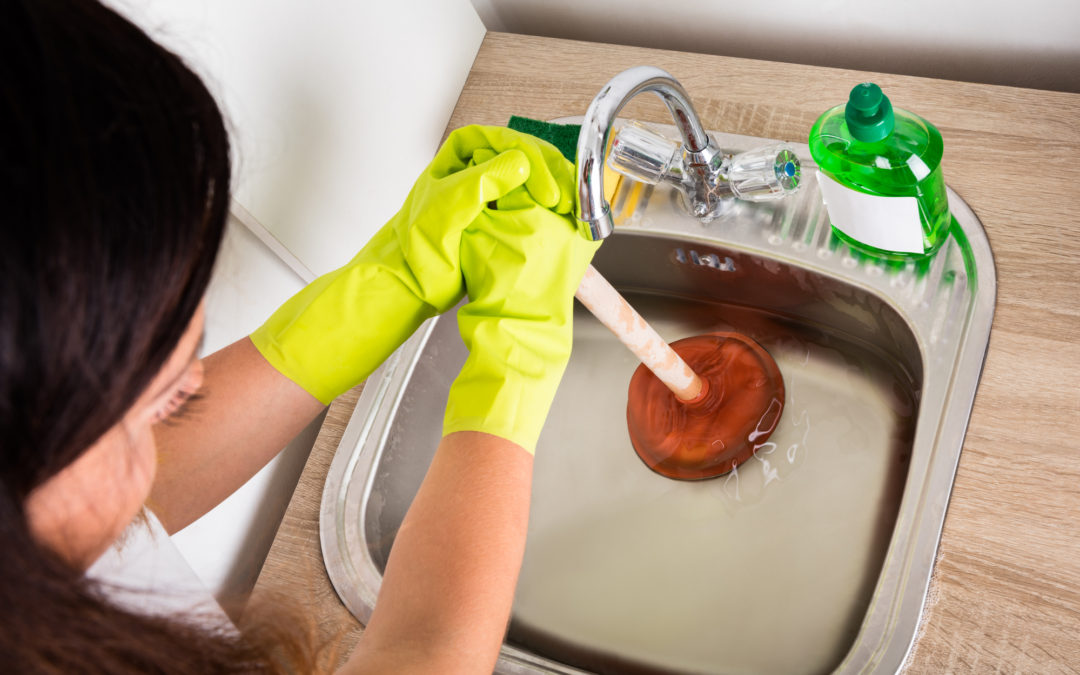
by Brandon | Aug 2, 2023 | Tips
Water is one of the essential commodities that every human being requires for survival. However, it can also be one of the most destructive forces, especially if not contained or handled correctly. Water damage can cause significant losses in property and lead to severe health issues if not addressed promptly and effectively. In this comprehensive guide, we will discuss what water damage is, its causes, signs, preventive measures, and how to deal with water damage effectively.
What is Water Damage?
Water damage refers to the destruction caused by water to any material or substance when it comes into contact with it. It is a common problem in plumbing systems and can result in significant losses in buildings and homes if not fixed promptly.
Some of the signs that indicate you have water damage include:
– Wet or damp carpets
– Discoloration of walls, floors, and ceilings
– Foul odor or presence of mold
– Buckled or warped floors
– Peeling or bubbled paint
– Visible mold growth on walls or ceilings
– Damaged or wet woodwork
– Cracked or stained walls and ceilings
Causes of Water Damage
Water damage can result from various sources, including natural disasters like floods and storms. However, plumbing issues are the most common causes of water damage in homes and commercial buildings.
Some of the leading causes of plumbing-related water damages include:
1. Burst or Leaky Pipes
Pipes are an essential component of any plumbing system, and they can develop cracks or burst due to various reasons. Some of the leading causes of pipe bursting or leaks include age, wear and tear, internal corrosion, high water pressure, and frozen pipes.
2. Clogged Drains
Clogged drains can cause stagnant water to accumulate in sinks, bathtubs, and other plumbing fixtures, leading to water damage and mold growth in areas surrounding the clog. The buildup of debris, grease, and other materials in pipes can cause clogs and blockages.
3. Faulty Appliances
Appliances like washing machines, refrigerators, and dishwashers use water to function effectively. However, they can cause water damage if they malfunction or have faulty components like hoses and gaskets.
4. Cracked Plumbing Fixtures
Cracks in plumbing fixtures like sinks, toilets, and bathtubs can cause water to leak and damage surrounding surfaces, leading to costly repairs.
Preventive Measures for Water Damage
Preventing water damage should be a priority for every homeowner or building manager. Here are some of the measures that can help prevent water damage:
1. Regular inspections
Regular inspections of plumbing systems and fixtures can help detect potential leaks or malfunctions and fix them before they cause significant damage.
2. Proper maintenance
Proper maintenance of appliances and plumbing fixtures can prevent wear and tear and improve their longevity, reducing the likelihood of leaks and malfunctions.
3. Install water alarms
Installing water alarms can help detect leaks and excess moisture in areas that are likely to suffer water damage, like basements and crawl spaces.
4. Keep gutters clean
Clogged gutters can cause water damage to roofs and walls by diverting water into areas where it shouldn’t be.
5. Upgrade plumbing systems
Upgrading your plumbing system with modern technology and materials like polyethylene piping can prevent leaks and improve the lifespan of your plumbing system.
Dealing with Water Damage
Dealing with water damage can be a daunting task, especially if the damage is extensive. Here’s a step-by-step guide on how to deal with water damage effectively:
1. Shut off the water source
The first step in dealing with water damage is turning off the water source leading to the affected area. This will prevent water from continuing to flow to the damaged area, reducing the overall damage.
2. Assess the damage
Assess the damage caused by water to determine the extent of the damage and the areas that require repair or replacement.
3. Remove excess water
Using a wet-dry vacuum or mop, remove the excess water from the affected area.
4. Dry the area
Dry the affected area using fans, dehumidifiers, and other drying equipment to prevent mold growth and further damage.
5. Repair or replace damaged surfaces
Repair or replace any surfaces that have been damaged beyond repair, like drywall, carpets, and insulation.
6. Disinfect the area
After repairing or replacing the damaged surfaces, thoroughly disinfect the affected area to prevent the growth of mold and to ensure it’s safe for habitation.
Conclusion
Water damage can be disastrous, but preventing it and addressing it promptly can help minimize the overall damage and prevent costly repairs. Regular inspections, maintenance, and upgrading of plumbing systems can prevent water damage caused by plumbing-related issues. In case of water damage, shut off the water source, assess the damage, and remove excess water and dry the area. Remember to disinfect the area after repairs to prevent mold growth and ensure the area is safe.
For all your plumbing issues and questions, visit Ace Plumbing Repair’s website aceplumbingrepair.com, or give their experts a call at (844) 711-1590.
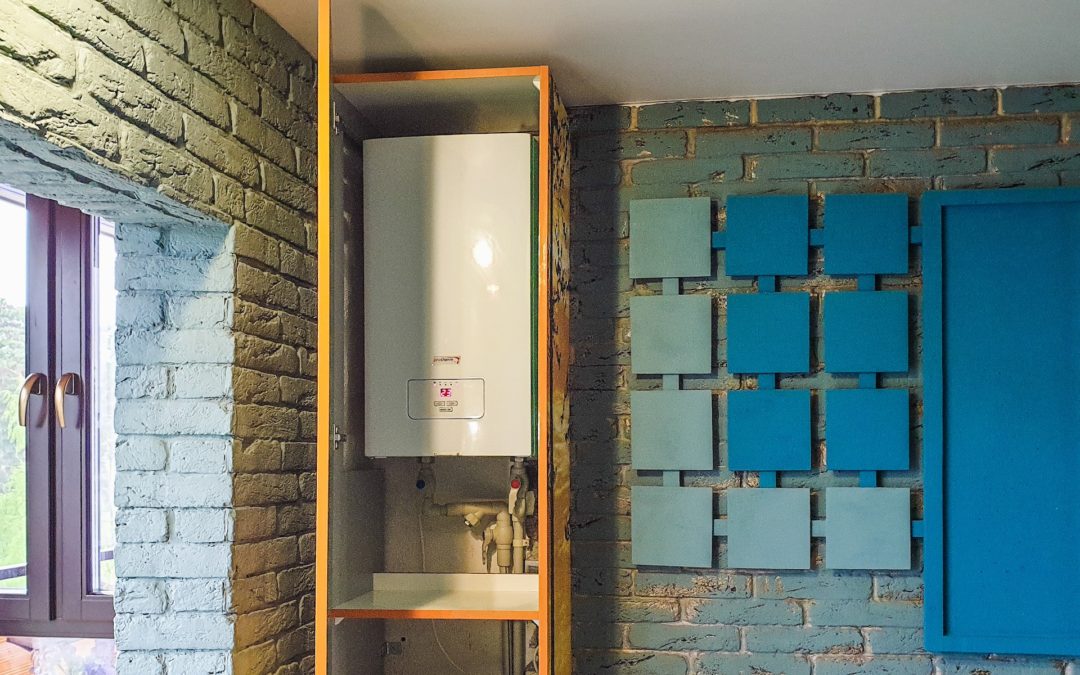
by Brandon | Aug 2, 2023 | Maintenance
When it comes to choosing a hot water system for your home, one of the options that you may come across is the tankless hot water system. This type of system works by heating water on demand, rather than storing it in a tank. While there are some definite advantages to this type of system, there are also some drawbacks that you should be aware of before making your decision. In this post, we’ll explore the pros and cons of tankless hot water systems, so that you can make an informed decision about whether this type of system is right for your home.
Pros
1. Energy Efficiency
One of the biggest advantages of tankless hot water systems is their energy efficiency. Because they heat water on demand, rather than storing it in a tank and constantly reheating it, they use far less energy than traditional hot water systems. This can result in significant savings on your energy bill over time.
2. Continuous Hot Water
Another advantage of tankless hot water systems is that they provide continuous hot water. With traditional hot water tanks, you can run out of hot water if you use more than your tank can hold. But with a tankless system, you’ll never run out of hot water, as it’s heated on demand.
3. Longer Lifespan
Tankless hot water systems typically have a longer lifespan than traditional hot water tanks. While a traditional hot water tank may last 10-15 years, tankless systems can last up to 20 years or more with proper maintenance.
4. Space Saving
Tankless hot water systems are also space saving, as they don’t require a large tank to store hot water. This can be particularly beneficial if you have limited space in your home, or if you’re looking to free up some space in your utility room.
Cons
1. Higher Upfront Cost
One of the biggest downsides of tankless hot water systems is their higher upfront cost. Because they are more complex than traditional hot water tanks, they require more sophisticated installation and often cost significantly more upfront. However, as mentioned before, they can save you money on your energy bill in the long run.
2. Limited Supply of Hot Water
While tankless systems can provide endless hot water, they can also be limited in the amount of hot water they can supply at one time. This means that if you have a very large household, you may need to install multiple units to ensure that you have enough hot water for everyone.
3. Initial Wait Time
Finally, tankless hot water systems can have a slight delay in providing hot water, as the unit needs to heat the water on demand. This can be a particular issue if you’re using hot water for multiple tasks at once, such as running the dishwasher while someone else is showering.
Conclusion
In conclusion, tankless hot water systems offer a number of benefits over traditional hot water tanks, including energy efficiency, continuous hot water, longer lifespan, and space savings. However, they do come with some drawbacks, such as higher upfront costs, limited supply of hot water, and an initial wait time for hot water. Ultimately, the decision of whether to install a tankless hot water system in your home will depend on your specific needs, budget, and the number of people in your household. Talk to a plumbing expert to determine which hot water system is right for you and your home’s needs.
As always, if you’re experiencing any hot water issues, don’t hesitate to contact the expert plumbers at Ace Plumbing Repair! Give us a call at (844) 711-1590 or visit our website at aceplumbingrepair.com to schedule an appointment today!
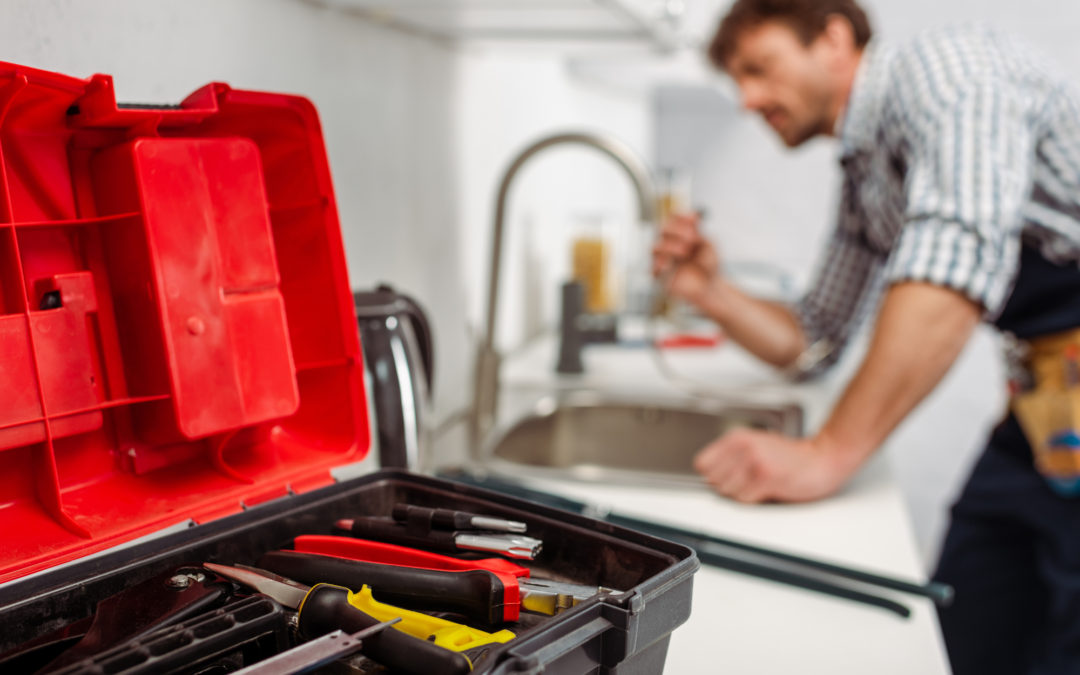
by Brandon | Aug 2, 2023 | Tips
Your home’s plumbing system is one of the most critical and complex infrastructures within the house. It is responsible for supplying clean water, removing waste and sewage efficiently, and providing hot water for various purposes like taking a bath, washing dishes, and many others. With regular use, it is only reasonable that some plumbing issues will arise, such as leaks, clogs, and other problems that require professional attention. When you encounter such a problem, the best and most recommended solution is to hire a licensed plumber. In this post, we will discuss the main reasons why you should always hire a licensed plumber for your home.
1. Proper Training and Experience: Being a licensed plumber means you have undergone proper training and apprenticeship, passed the necessary exams, and acquired all-state licenses and permits to operate as a professional plumber. Licensed plumbers possess the necessary knowledge and experience to handle various plumbing issues, from minor plumbing problems to the most complex ones. They have undergone extensive training and have dealt with a wide range of plumbing issues, thus having the best solutions to the problem.
2. Better Equipment and Tools: Licensed plumbers have access to better and more advanced equipment, tools, and technology than their unlicensed counterparts. They use specialized tools and equipment for repairing plumbing issues that are not available to non-professionals. The proper equipment and tools also ensure that the repair work is done efficiently, effectively, and on time.
3. Liability Insurance and Worker’s Compensation Coverage: Working with a licensed plumber gives you the peace of mind that you’re working with a professional who has the necessary protection. Licensed plumbers carry insurance that covers potential damages caused by their work. If an accident happens and causes property damage, the plumber insurance will cover the compensation amount. Moreover, licensed plumbers have worker’s compensation coverage to protect you from any liability if the plumber gets injured while working on your property.
4. Compliance with Building Codes: Licensed plumbers know, understand, and abide by the local plumbing codes and regulations. Plumbers that operate outside the law or without a license run the risk of installing incorrect fixtures, misaligned pipework, and using low-quality materials which can cause safety hazards and fail to meet building codes regulations. Licensed plumbers will ensure that your plumbing system complies with the law and that the installations and repairs done are above bar.
5. Long-Term Warranty: When you hire a licensed plumber, you can be sure that the repair or installation work done has a long-term warranty. Professional licensed Plumber has the credibility to stand behind their work and provide long-term coverage for any work that they do. Furthermore, licensed plumbers use high-quality materials, which, when combined with skilled workmanship, can extend the life of your plumbing system.
In conclusion, hiring a licensed plumber ensures you receive the highest level of professional service, expertise, and quality. You get peace of mind knowing that professionals are handling your plumbing needs, that the plumbing work done is safe, and the materials used are high-quality. Using and hiring an unlicensed or inexperienced plumber can turn out disastrous, causing long-term damage to your plumbing infrastructure, leading to more costs in the future. Therefore, it is always best to hire a licensed plumber to avoid potential risks and guarantee the best possible plumbing services for your home.
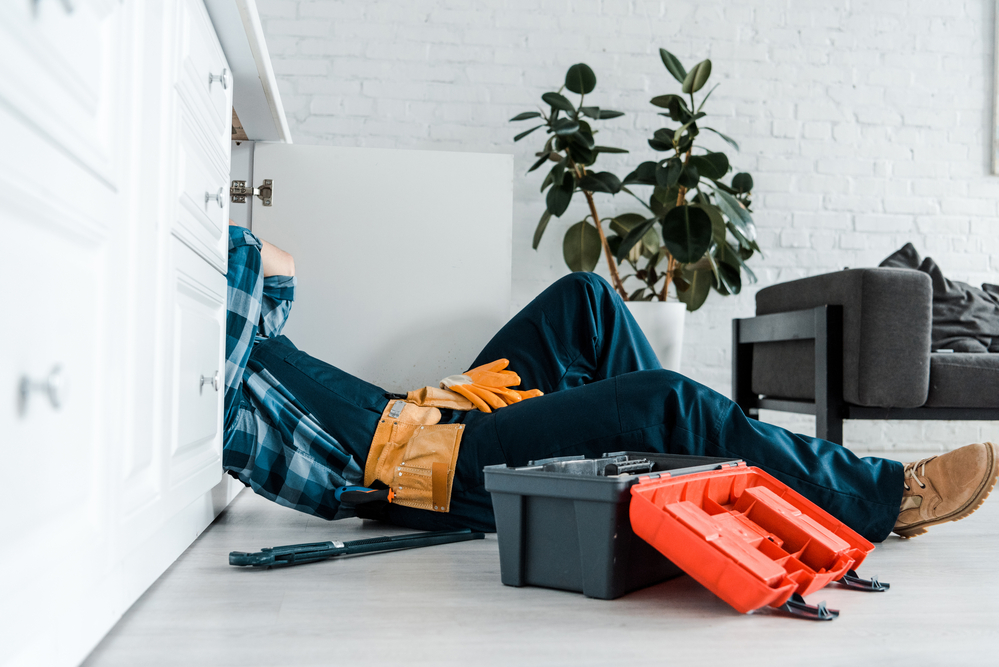
by Brandon | Aug 2, 2023 | News
Oatey, a leader in the plumbing industry, has recently announced their acquisition of Lansas B.V., a Netherlands-based company that specializes in waterworks products. This acquisition marks Oatey’s expansion into the European market, further cementing their status as one of the top plumbing service providers in the world.
With this new purchase, Oatey now has access to Lansas B.V.’s extensive line of products, which include a range of plumbing solutions such as pipe plugs, test balls, and flow stoppers. These products will now be available to Oatey’s existing customer base as well as new customers in Europe.
The acquisition of Lansas B.V. is a strategic move for Oatey as they look to establish themselves as a leading provider of plumbing and waterworks products globally. Oatey CEO, Neal Restivo, stated, “The addition of Lansas B.V.’s distribution and manufacturing network in Europe will provide us with incremental growth opportunities while continuing to provide best-in-class products and services to our customers.”
As Oatey continues to expand their reach, customers can expect even more innovative and reliable solutions for their plumbing needs.
In conclusion, the plumbing industry is constantly evolving. Whether it’s through expansion into new markets or the adoption of eco-friendly solutions, companies like Oatey are at the forefront of innovation. As a homeowner, it’s important to stay informed about the latest trends and best practices in plumbing to ensure your home remains safe and efficient. Additionally, when hiring a plumbing professional, make sure to choose a licensed and experienced provider to ensure the highest quality of service.
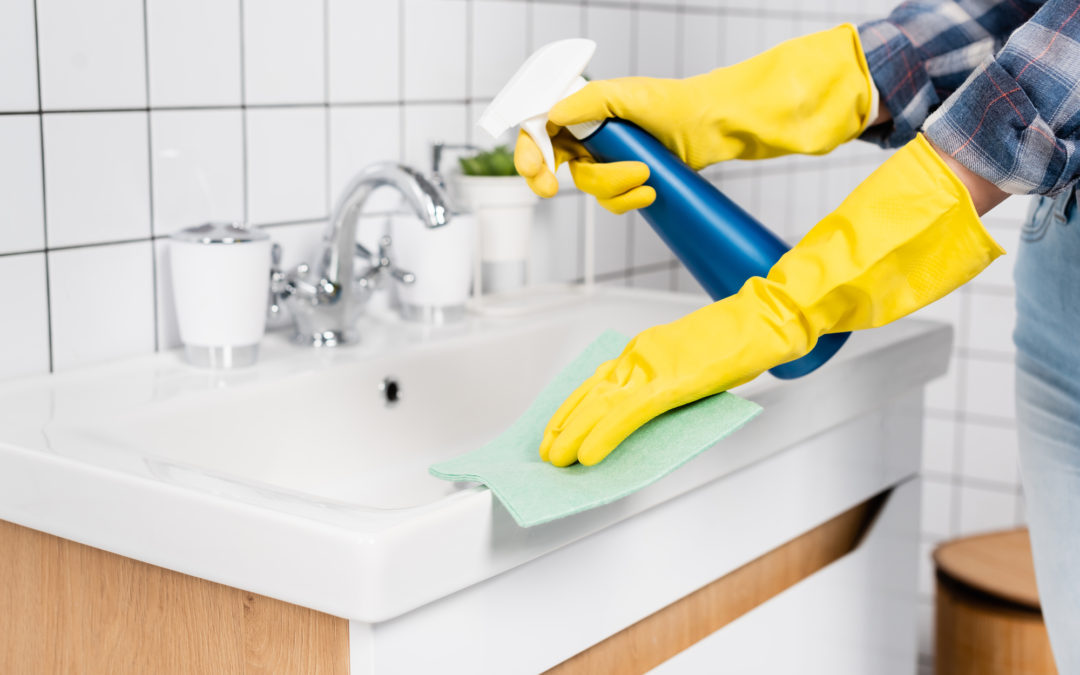
by Brandon | Aug 2, 2023 | Tips
If you are running a service-based plumbing business, you may be wondering how to scale and grow your business. Scaling a business can be challenging, but with the right strategy, it can be done efficiently and effectively. Here are some tips to help you scale your plumbing business.
1. Define Your Target Market
Defining your target market is crucial to scaling your plumbing business. You must know who your ideal customers are and what their needs are. Determine the demographics, psychographics, and behavior of your target audience. This information will help you create effective marketing campaigns that resonate with your target customers.
2. Develop a Strong Business Plan
Before scaling your plumbing business, you must develop a solid business plan. This plan should outline your goals and objectives, strategies for achieving those goals, and financial projections for growth. It should also include a budget, cash flow projections, and other financial metrics.
3. Create Processes and Systems
To successfully scale your plumbing business, you must create processes and systems that are repeatable and scalable. Processes and systems make it easier to delegate tasks to employees and streamline your operations. This, in turn, frees up your time to focus on growing your business.
4. Hire and Train Employees
Hiring and training employees are essential to scaling your plumbing business. To find the best candidates, create a hiring process that includes a job description, job advertisement, and a detailed interview process. Once you hire employees, provide them with the necessary training to ensure they can perform their job duties effectively.
5. Implement Technology
Technology can play a critical role in scaling your plumbing business. Consider implementing software tools to automate routine tasks, streamline communication, and centralize data. This can save time and improve the efficiency of your business.
6. Focus on Customer Service
Good customer service is one of the most critical factors in scaling a service-based business like plumbing. Positive customer experiences lead to repeat business and referrals, which are crucial to growth and expansion. Ensure your employees are trained in customer service and aim to exceed customer expectations.
7. Leverage Social Media
Social media can be an effective marketing tool for your plumbing business. Use social media platforms like Facebook, Instagram, and LinkedIn to connect with potential customers and build your brand. Share information about your services, customer reviews, and industry news to increase your visibility online.
8. Analyze Your Metrics
To track the success of your business and determine areas for improvement, analyze your metrics regularly. Key metrics include revenue, cash flow, customer acquisition cost, lifetime value, and gross margin. These metrics can help you make informed decisions about your business and identify areas for improvement.
9. Partner with Other Local Businesses
Partnering with other local businesses can help you expand your reach and attract new customers. Identify businesses that complement your plumbing services, such as contracting or remodeling businesses. Collaborate on cross-promotion and marketing initiatives to expand your reach.
10. Monitor Your Competition
To stay ahead of the competition, you must monitor their activities regularly. Identify their strengths and weaknesses and use this information to improve your business. Analyze their marketing campaigns, pricing strategies, and customer service to gain insights and stay competitive.
Conclusion
Scaling a service-based business like plumbing can be challenging, but with the right strategies and tactics, it can be done efficiently and effectively. By defining your target market, creating processes and systems, hiring and training employees, implementing technology, and focusing on customer service, you can position your plumbing business for long-term growth and success. Remember to analyze your metrics regularly, partner with other local businesses, and monitor your competition to stay ahead of the game. With these tips, you can take your plumbing business to the next level. If you are looking for plumbing services near you, visit aceplumbingrepair.com or give us a call at (844) 711-1590.





